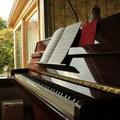No ponto do ônibus
|à l'arrêt||
At the|point|of|
An der Bushaltestelle
At the bus stop
En la parada de autobús
À l'arrêt de bus
バス停にて
버스 정류장에서
在车站
Mariana mora num pensionato e divide o quarto com uma amiga.
|||foyer étudiant||partage|||||
|lives|a|boarding house||shares||room|||
マリアナ|住んでいる||下宿||分ける|||||
|||residencia estudiantil|||||con||
|||akademik||dzieli||pokój|||
Mariana lebt in einer Pension und teilt sich ein Zimmer mit einer Freundin.
Mariana lives in a boarding school and shares the room with a friend.
マリアナは下宿に住んでいて、友達と部屋を共有しています。
De manhã cedo elas conversam:
||||Elles discutent
||early|they|talk
||Temprano|Ellas|
Frühmorgens reden sie miteinander:
Early in the morning they talk:
朝早く彼女たちは話します:
— Ei Mariana, é melhor você se apressar, ou vai perder o ônibus para ir para a escola.
Hé||||||dépêcher||||||||||
hey|||||yourself|hurry up|or|vai|miss||bus|to|go|||
||||||beeilen|||verpassen||Bus|||||
||||||pospieszyć się||||||||||
|||||||||失う|||||||
|||||||||perder|||||||
- Hey Mariana, du musst dich beeilen, sonst verpasst du den Bus zur Schule.
"Hey Mariana, you better hurry up, or you'll miss the bus to go to school.
— ねえマリアナ、急いだ方がいいよ、さもなければ学校に行くバスを逃しちゃうよ。
— Calma, já estou quase pronta, só preciso colocar meu tênis.
calm down|||almost|ready||I need|put on||sneakers
Spokojnie||||gotowa|||||buty sportowe
Tranquila|||casi|||necesito|ponerme|mi|zapatillas deportivas
|||||||||靴
- Entspann dich, ich bin fast fertig, ich muss nur noch meine Turnschuhe anziehen.
- Easy, I'm almost ready, I just need to put my sneakers on.
— 落ち着いて、もうすぐ準備ができるから、靴を履くだけだよ。
— 冷靜點,我差不多準備好了,我只需要穿上我的運動鞋。
Cadê minha mochila?
Où est||Où est mon sac?
Where's||backpack
||Rucksack
||Gdzie jest mój plecak?
||バックパック
¿Dónde está?||
Wo ist mein Rucksack?
Where's my backpack?
私のバックパックはどこ?
— É aquela mochila verde ali no canto da sala?
||||||||habitación
||||||coin||
|that|backpack|green|there||corner||room
|||緑の|||隅に||
||||||kąt||
- Ist das der grüne Rucksack in der Ecke des Zimmers?
- Is that green backpack over there in the corner of the room?
— あそこ、部屋の隅にある緑のバックパック?
— Não, é uma azul com zíper cinza.
|||||fermeture éclair|
|||||zipper|gray zipper
|||||Reißverschluss|grau mit Reißverschluss
|||||suwak|szary
||||||灰色
||||||gris
- Nein, es ist ein blauer mit einem grauen Reißverschluss.
- No, it's a blue one with a gray zipper.
— いいえ、グレーのジッパーが付いた青です。
— Ah, eu a vi no quarto.
||her|saw||room
- Ah, ich habe sie im Schlafzimmer gesehen.
- Ah, I saw her in the room.
— ああ、私はそれを部屋で見ました。
Espere aí que eu vou buscar para você... Toma
Wait|||||get|||Here you go
待って|||||取りに行く|||
||||||||Proszę bardzo
Bleiben Sie dran und ich hole es für Sie... Hier
Wait, I'll get it for you ... Here
ちょっと待って、持ってきますね... はい。
— Obrigada.
Gracias.
— Thank you.
Nos vemos mais tarde no shopping?
|Nous voyons||||
|"See"||||mall
|会いましょう||||ショッピングモール
Sehen wir uns später im Einkaufszentrum?
See you later at the mall?
後でモールで会いましょうか?
— Sim, sim.
- Ja, ja.
— Yes, yes.
Três da tarde estarei lá, na área de alimentação.
|||serai|||||restauration
|||I will be|there||||food court
||||||||strefa gastronomiczna
Tres||||||||área de comidas
||||||||食事
Um drei Uhr nachmittags werde ich dort sein, im Essbereich.
Three in the afternoon I'll be there, in the eating area.
午後3時に、私はフードコートにいます。
Nos encontramos direto na sorveteria.
|Nous nous retrouvons|||glacier
|we meet|straight|at the|ice cream shop
||||Eisdiele
||||Lodziarnia
|会う|まっすぐ||アイスクリーム屋
||||heladería
Wir treffen uns direkt in der Eisdiele.
We met directly at the ice cream shop.
私たちはアイスクリーム屋で直接会いましょう。
— Combinado, então.
D'accord, alors.|
"Agreed, then."|then
了解|
Zgoda, więc.|
- Also gut.
- All right, then.
— じゃあ、決まりね。
Tchau, até mais tarde.
bye|see||
Tschüss, bis später.
Bye, see you later.
— Tenha bom dia!
— Hab einen guten Tag!
- Have a nice day!
— Você também.
— Du auch.
You too.
Mariana corre até o ponto de ônibus, mas o ônibus já passou.
|||||||||bus||est passé
|runs|to|||||||||passed
|||||||||||通り過ぎた
||||przystanek autobusowy|||||||
Mariana rennt zur Bushaltestelle, aber der Bus ist schon vorbei.
Mariana runs to the bus stop, but the bus has already passed.
Ela pergunta para uma senhora que está no ponto:
||||||||à l'arrêt
sie||||||||
||||lady||||bus stop
||||||||parada de autobús
fragt sie eine Dame an der Bushaltestelle:
She asks a lady who is at the bus stop:
彼女はポイントにいる女性を尋ねる:
— A senhora sabe me dizer se o ônibus da linha 18 já passou?
|||||||||||est passé
|||||ob||||||
|||||if||||line||
|||||||||路線||通り過ぎました
||||decir|||||||pasó
- Können Sie mir sagen, ob der Bus der Linie 18 vorbeigefahren ist?
- Can you tell me if the line 18 bus has already passed?
— Acabou de passar — Ah, que pena.
Vient de passer|||||
it just||||what|shame
|||||szkoda
- Es ist gerade vorbei - Oh, wie schade.
- Just passed - Ah, too bad.
Será que o próximo vai demorar muito?
|||||mettre du temps|
will it||||will|take long|
|||||zajmie dużo czasu|
¿Será que|||próximo -> siguiente|va a tardar|tardar|mucho
|||||遅れる|
Wird die nächste Ausgabe lange auf sich warten lassen?
Will the next one take too long?
次はどのくらいかかるかな?
Bir sonraki çok uzun sürecek mi?
— Não sei te dizer.
|I know|you|tell
|sé||decir
- Das kann ich Ihnen nicht sagen.
- I can't tell you.
— わからない。
Tá indo pra onde?
are|going|to|where
|yendo||¿Adónde?
Wohin gehst du?
Where are you going?
どこに行くの?
— Vou até a praça Rui Barbosa.
|||place|Rui Barbosa|Rui Barbosa
|||town square|Rui|Barbosa
|||広場||バルボーサ
|||||Barbosa
— Ich gehe zum Rui Barbosa Platz.
- I'm going to Rui Barbosa square.
— ルイ・バルボーザ広場まで行きます。
— Então também dá pra pegar a linha 22 e descer na esquina da avenida José de Alencar.
|||||||||||||||José de Alencar
||it is possible|to|||||get off||corner||avenue|||Alencar Avenue
||||||バス路線||降りる||角|||||アレンカール
||||tomar||línea||||esquina|||||José de Alencar
||||||||wysiąść|||||||
— Dann kannst du auch die Linie 22 nehmen und an der Ecke der Avenida José de Alencar aussteigen.
— Then you can also take line 22 and get off at the corner of Avenida José de Alencar.
— それなら22番線に乗って、ホゼ・デ・アレンカー通りの角で降りることもできます。
Dali até a praça Rui Barbosa é só uma quadra.
|||||||||pâté de maisons
From there|until||square||||||block
||||ルイ|バルボーザ||||ブロック
|||||||||cuadra
|||||||||jedna przecznica
Von dort ist es nur ein Block bis zum Rui Barbosa Platz.
From there to Praça Rui Barbosa is just a block away.
そこからルイ・バルボーザ広場まではすぐのブロックです。
— É verdade.
|— Es verdad.
- Das ist wahr.
- It's true.
Boa idéia.
Good|good idea
Gute Idee.
Good idea.
Obrigada pela dica.
||Merci pour le conseil.
thank you|for|tip
||ヒント
|por la|
||wskazówka
Danke für den Tipp.
Thank you for the tip.

